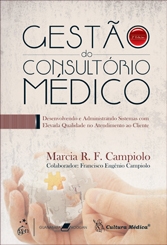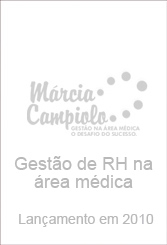 É impossível pra um homem, aprender aquilo que ele acha que já sabe
É impossível pra um homem, aprender aquilo que ele acha que já sabe 
Epiteto (Filósofo Grego, 50-130 a.C)
the wods’ impact on the relationship with the client

The verbal communication constitutes, in the medical area, of one powerful instrument of work. It is the tool with which we exchange information with the client.
Communication is maybe one of the most critical and complex point in the human relationship and dominating this area can be considered as a great challenge for professionals of any area, but for those who work with service it is a matter of survival.
The major problem is that this is not a precise tool, once we communicate, many times it happens that the listener doesn’t comprehend “exactly” what we wanted to transmit, and this is the critical point of this process.
When the communication process doesn’t happen in an effective way, there are two big obstacles that most of the times make this process harder:
1) We have the illusion that we speak the same language;
2) We assume that the other always understands the meaning of our words and vice-versa.
Despite of the words be our everyday working instrument, we are not always aware of its great power in the communication process. It makes a strong impact in the relationship with the client.
“Poorly placed” words or “wrongly interpreted” can not always be repaired. We must "step on eggs" when speaking with another person.
Being such a sensitive area, one question is needed: Who is responsible for a "misunderstood" communication?
It is easy to leave the responsibility to the other person for a failure in the understanding of a dialogue, but in reality it is not like that. So it must be clear that the issuer of the message is responsible for the effectiveness of the communication, that is, who gives the information. Thus, if the other did not react as you expect, it is necessary to make successive adjustments in your ability to communicate, trying tirelessly to develop your use of words, which of course is a task that will never be ready; it’s a continuous process, where we spend our lives learning from the mistakes and successes day after day.
So that the other understands your message as clearly as possible, we must pay attention to the following points:
• Vocabulary adequacy
• Voice tone and modulation adequate to the environment
• Words’ pace and speed
• Number of words used to express yourself
• Organization of the content being expressed
We must remember that when we speak with someone, we should quickly examine the traits of our listener and match "the words" to this situation. If the listener is not aware of the subject being discussed, it is not appropriate the use of highly technical terms, as this will block an efficient communication, making for sure the “winding” messages unable to achieve its goal.
The appropriate use of each word is essential so that the communication process between the team and the customer flows the best way possible without misunderstandings and diverted perceptions that might cause any “noise” to this relationship.
Furthermore, a very important factor can not be forgotten, before starting a conversation all barriers must be toppled, because people tend strongly to reply according to the behavior of the other person.
Thus, during the first instants when you establish a visual contact, before saying any word, before breaking the silence, a smile is the great key to open the first door in the communication process.
Adding to the smile, another aspect that can not be overlooked, is the importance of calling people by their names, it consists of a very sweet sound for the people.
It is very common to ask someone’s name in the start of the conversation, and in the middle of the conversation we forget this name. This may give the client a feeling of lack of importance and value towards himself.
This way, so that we can remember the name of the client, a simple technique can be used and it works very well, proceeds as following:
- Ask the client’s name in the start of the conversation
- Repeat the name mentally
- Save it consciously
Within this concept, it is important to evaluate the words most used everyday in the clinic, which bring with them meanings and perceptions that will define the image that the client makes of the doctor and his team inside the clinic.
Since it is a representation it is individual, and each one has its own representation.
We can take as an example the sentence “wait a little bit and soon the doctor will see you”. This sentence gives the client a perception that within little time he will be seen. After one hour waiting, the fist impression starts to be totally equivocal and the client is with multiple feelings that go through irritation and disappointment.
Situations like this occurs frequently, with innumerous other words and concepts that make the client create within him negative feelings towards the doctor and his team.
These feelings surely contribute to the search of a stable and lasting relation with the client not achieve its effective way.
Therefore, we need to search in our language, words that can bring positive impacts on the relationship with the client, which will, for sure, bring benefits.








